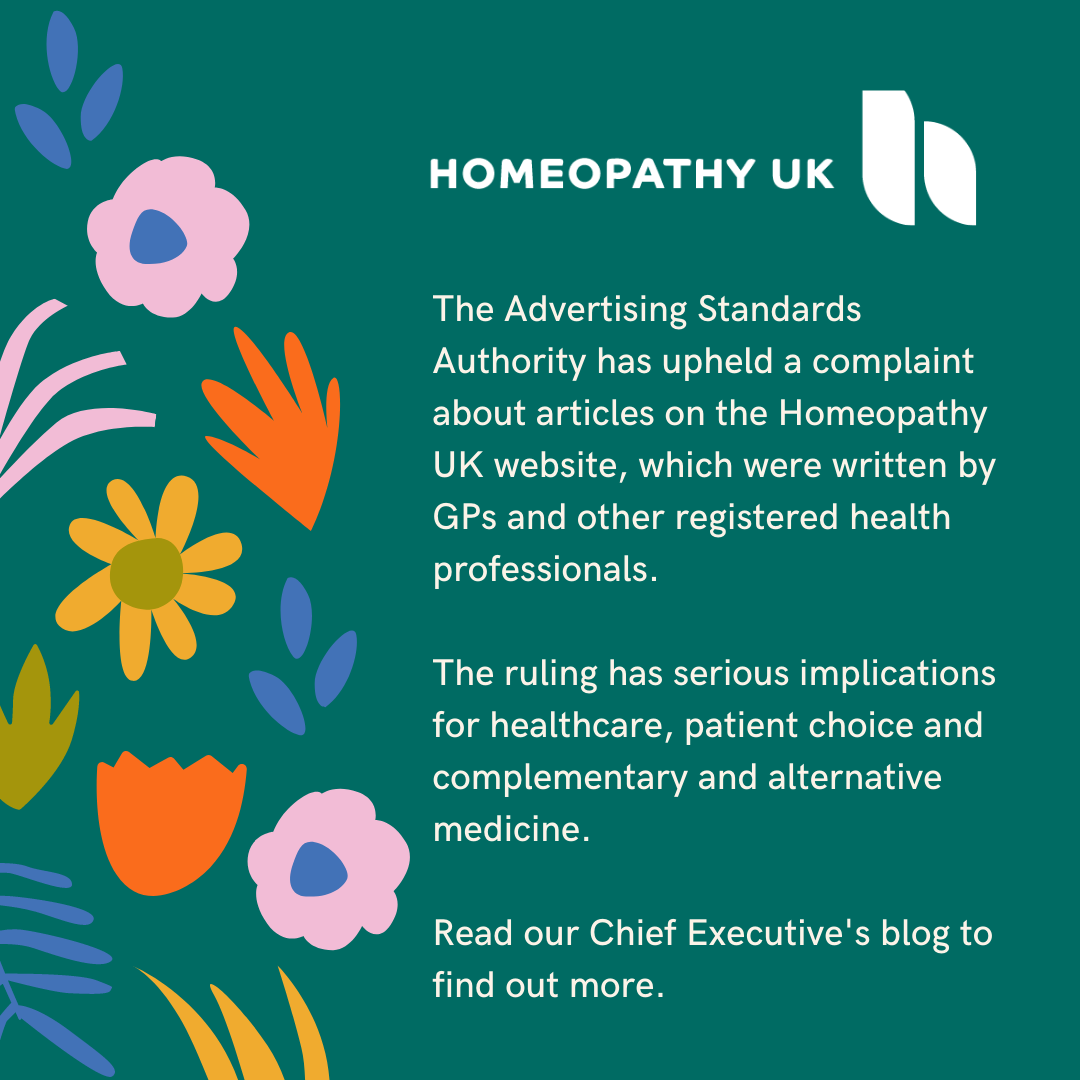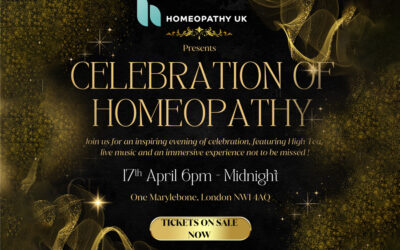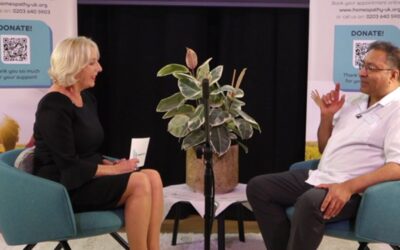Today the Advertising Standards Authority (ASA) announced that it has upheld a complaint about the Homeopathy UK website.
Although the ASA is mainly concerned with advertising and marketing, it also regulates what appears on any website offering a product or service – including websites providing information about complementary and alternative therapies.
It is very unusual for Homeopathy UK to receive complaints and this is the first time our website has been the subject of an ASA enquiry. The complaints process is a confidential one and, in this case, involved months of submissions and letters between us and the ASA. Now that we are able to talk publicly about the complaint, I wanted to share with you some of the details – not least because it touches the heart of our charitable mission and has serious implications for patients’ rights.
The complaint related to articles in the Conditions Directory section of the site where doctors and other medically trained professionals share their experience of how homeopathy can help depression, diabetes, infertility, psoriasis and asthma. The ASA informed us that the complaint was based on the premise that the articles “discouraged essential treatment for conditions for which medical supervision should be sought”.
The idea that, after reading our website, someone might decline essential medical treatment is as troubling as it is unlikely. Not least because we know the people who visit the site to be discerning and intelligent people who are able to make informed choices about their own healthcare.
We are also unaware of any evidence showing that people visiting the website have been discouraged from using other forms of treatment. When we asked the ASA what evidence they had to show how the articles in question might discourage readers from seeking essential treatment they were unable to supply any. Nor were they able to give us the name of the person who made the complaint.
We wrote to the ASA explaining that the very basis of this complaint is flawed in that it fails to understand both the context in which the articles appear and the nature of homeopathic treatment. Despite the fact that Homeopathy UK’s website does not promote or endorse products or services for commercial gain, the ASA repeatedly referred to the articles as “adverts”. We explained that, for more than a century this charity has sought to share high-quality information about homeopathy and that patient safety is at the heart of our charitable purpose.
We highlighted the fact that the articles in question are all written by highly trained medical professionals registered with the General Medical Council as well as additional registering bodies associated with their specialism. Far from discouraging essential treatment, these articles show how registered health professionals used homeopathy alongside conventional medicine to offer patients additional therapeutic opportunities. Confusingly, while the ASA stated that they do not question a doctor’s right to practise or advise patients, this complaint appears to do precisely these things.
We also shared with the ASA the GMC advice to doctors which states:
“Shared decision making and consent are fundamental to good medical practice…. Serious harm can result if patients are not listened to, or if they are not given the information they need – and time and support to understand it – so they can make informed decisions about their care”.
Sadly, after reviewing our responses the ASA Council ruled to uphold the complaint. This means H-UK has been required to make changes to its website and remove some information. Although these changes are minor ones, the ASA ruling has worrying implications for our charity, homeopathy and integrated medicine in general.
We note that the complaint is remarkably similar to another complaint against Homeopathy UK’s charitable clinic, Liverpool Homeopathy made by the Good Thinking Society. These recent complaints also resemble the many complaints made to the ASA by the GTS as part of its very public agenda to try to remove homeopathy and complementary medicine from healthcare – thus reducing patient choice and access to information.
We are concerned that the ASA is being used by opponents of complementary and alternative medicine to further their own aims. If one anonymous complaint about perceived risks, not actual harm, can trigger this workload for the ASA and a small charity like ourselves, it seems a system vulnerable to abuse.
The ASA judges complaints based on criteria set out in the UK Code of Non-broadcast Advertising and Direct & Promotional Marketing (CAP Code). This system was devised for “non-broadcast advertisements, sales promotions and direct marketing communications”. The CAP rules which the ASA enforces around homeopathy and complementary and alternative medicine are not fit for purpose. Far from posing a risk to public health, our sector provides essential care to those in need and helps release pressure on NHS services.
Thank for your support for Homeopathy UK and our shared interest in what we know to be a safe and effective form of medicine. Rest assured that, whatever the obstacles, we remain committed to spreading accurate information about homeopathy, defending patients’ rights and providing access to treatment where it’s most needed.
With best wishes,
Cristal
Cristal Skaling-Klopstock



